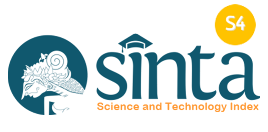PENGARUH SOSIAL MEDIA INSTAGRAM TERHADAP TINGKAT LITERASI POLITIK SISWA
DOI:
https://doi.org/10.24269/pls.v5i2.3464Abstract
Pengaruh media sosial saat ini  memiliki dampak luas terhadap kehidupan dan media sosial menjadi kebutuhan primer masyarakat tak terkecuali siswa SMA Negeri 3 Batam. Aktivitas penggunaan media sosial dikalangan siswa digunakan untuk mendapatkan hiburan, eksistensi, bahkan informasi seputar politik. Penelitian ini fokus pada pengaruh media sosial pada tingkat literasi politik di kalangan siswa di SMA Negeri 3 Batam. Penelitian menggunakan pendekatan kuantitatif deskriptif, dengan metode survei, sampel dalam penelitian sejumlah 66 siswa, analisis data dilakukan dengan deskriptif untuk mengetahui tingkat literasi politik siswa di SMA Negeri 3 Batam,. Tujuan penelitian ini berupaya untuk mengungkap bagaimana pengaruh media sosial terhadap tingkat literasi politik mahasiswa di SMA Negeri 3 Batam sebagai cara untuk memahami realitas literasi politik dikalangan siswa SMA Negeri 3 Batam.  Hasil penelitian menunjukkan bahwa terdapat pengaruh bahwa media sosial dapat mengembangkan literasi politik dengan kategori kesadaran akan pengetahuan akan politik, memahami istilah baru dalam politik dan percaya serta yakin dalam partisipasi politik.
References
Basuki, S. (2010). Metode Penelitian (2nd ed.). Penaku.
BatamPos. (n.d.). Batam Miliki 3.000 Pemilih Pemula, Ini Upaya KPU Agar Generasi Milenial Ikut Nyoblos saat Pemilu - Tribun Batam. Retrieved December 20, 2020, from https://batam.tribunnews.com/2019/03/12/batam-miliki-3000-pemilih-pemula-ini-upaya-kpu-agar-generasi-milenial-ikut-nyoblos-saat-pemilu
Berapa Pengguna Media Sosial Indonesia? | Databoks. (n.d.). Retrieved October 15, 2020, from https://databoks.katadata.co.id/datapublish/2019/02/08/berapa-pengguna-media-sosial-indonesia
Converse, P. E. (1964). The nature of belief systems in mass publics. Free Press.
Denver, D., & Hands, G. (2013). Notes and Comments Knowledge , Attitudes and Perceptions of School Students. 20(2), 263–279.
Digital in 2018: World’s internet users pass the 4 billion mark - We Are Social. (n.d.). Retrieved October 15, 2020, from https://wearesocial.com/blog/2018/01/global-digital-report-2018
Gabriel, K. M., & Yusuf, A. (2020). EXPERIENCE OF AN ACADEMIC LIBRARY DURING THE COVID-19 PANDEMIC.
Krosnick, J. A. (1990). Expertise and Political Psychology. Social Cognition, 8(1), 1–8. https://doi.org/10.1521/soco.1990.8.1.1
Lailiyah, N., Yuliyanto, M., & Pradhana, G. A. (2018). Youthizen, Political Literacy, and Social Media. E3S Web of Conferences, 73, 20–23. https://doi.org/10.1051/e3sconf/20187314005
Pirie, M., & Worcester, R. M. (1998). The Millenial Generaion. https://pdfs.semanticscholar.org/fdc0/e7db42f596cf2c7b587c68af24c2613154db.pdf
Pradana, Y. (2017). Peranan media sosial dalam pengembangan melek politik mahasiswa. Jurnal Civics: Media Kajian Kewarganegaraan, 14(2), 139–145. https://doi.org/10.21831/civics.v14i2.16102
Ramdhani, H., Aliantika, N. N., Politik, I., Indonesia, U., Kewarganegaraan, P., Pendidikan, F., Pengetahuan, I., & Indonesia, U. P. (2019). Aktualisasi pendidikan kewarganegaraan sebagai upaya deradikalisasi mahasiswa. 2(1), 357–362.
Ramdhani, H., & Novian, R. M. (2020). Actualization of Political Education in Digital Learning to Prevent Radicalism. 3(2), 98–103.
Rosadi, B., Darmawan, C., & Anggraeni, L. (2020). THE INFLUENCE OF POLITICAL MESSAGE ON SOCIAL MEDIA FOR INCREASING THE POLITICAL LITERACY OF MILLENIAL. Jurnal Civicus, 20(1), 26–30.
Smith, L. N., & McMenemy, D. (2017). Young people’s conceptions of political information: Insights into information experiences and implications for intervention. Journal of Documentation, 73(5), 877–902. https://doi.org/10.1108/JD-03-2017-0041
Downloads
Published
How to Cite
Issue
Section
License
Licence
This Journal will place Author as Copyright Holder, The non-commercial use of the article will be governed by the Creative Commons Attribution license as currently displayed on Creative Commons Attribution-NonCommercial-ShareAlike 4.0 International License.

Author(s)' Warranties
The author warrants that the article is original, written by stated author(s), has not been published before, contains no unlawful statements, does not infringe the rights of others, is subject to copyright that is vested exclusively in the author and free of any third party rights, and that any necessary written permissions to quote from other sources have been obtained by the author(s).
Plagiarism Notice
PUBLIS Editorial board recognizes that plagiarism is not acceptable and therefore establishes the following policy stating specific actions (penalties) upon identification of plagiarism/similarities in articles submitted for publication in PUBLIS. PUBLIS will use Turnitin's originality checking software as the tool in detecting similarities of texts in article manuscripts and the final version articles ready for publication. A maximum of 30% of similarities is allowed for the submitted papers. Should we find more than 30% of the similarity index, the article will be returned to the author for correction and resubmission.

_baru.png)










